Celebrating the Nurses Who Support Our Clients and Members
May 3, 2023
About 3,000 nurse employees of Health Care Service Corporation help members get the care they need to improve their health. In recognition of National Nurses Week, HCSC honors our nurses for their commitment to the members of our plans in Illinois, Montana, New Mexico, Oklahoma and Texas.
Their experience is diverse, but the compassion, empathy and devotion to patient care they developed at the bedside helped them transition into roles such as case reviewers, care managers and clinical strategy managers and consultants.
Here are a few of their stories.
Arlane Concepcion
Holistic Health Specialist
Health Advocacy
A high school health science course was the first step toward what has become a 15-year nursing career for Arlane Concepcion.
During that six-week training, the medical professionals she shadowed fascinated her, especially the nurses because of the time and effort they spent caring for patients.
“It was nice to see what a difference they could make,” recalls Concepcion, who has held positions in hospitals, clinics, schools and home health. “That class really made a difference for me.”
As a holistic health specialist for HCSC, one of her biggest responsibilities is reaching out to members after hospital stays to help ensure they follow discharge orders and take medications. Although Concepcion does her work by phone, she knows she’s connecting with members and helping them, including a member confused by her discharge plan.
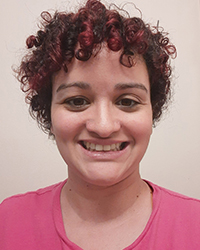
Arlane Concepcion
“I had to go over all her meds with her and then call her doctor back to make sure she was taking the right medications,” Concepcion recalls. “It’s a lot of collaboration. It was very relieving for her to have someone help her.”
She thinks of herself as a bridge between providers and members, using her nursing and insurance knowledge to help close communication gaps.
“I really do find this role very fulfilling,” says Concepcion, who also speaks Spanish. “I think nursing is one of those unique jobs you can work anywhere as long as you have a desire to help people.”
Allison Snedecor
Utilization Management Coordinator
Health Advocacy
As a high school freshman, Allison Snedecor knew she found her calling while volunteering at a hospital.
Snedecor admired the patient care and support the nurses provided and wanted to emulate them. After nursing school, she worked in home health, doctors’ offices and spent 10 years as a school nurse.
“I fell in love with nursing, and I never looked back,” she says. “My mom says it’s all I ever wanted to be.”
As a utilization management coordinator, Snedecor uses her pediatrics experience to review and approve care and hospitalizations, including neonatal intensive care unit (NICU) stays.
“The goal is still the same, even though I’m not at the bedside — to help people and keep them healthy,” says Snedecor, who may follow a NICU baby’s care up to a year after birth. “You’re rooting for them. I feel like I get to be part of their story.”
She likens her role to that of a stagehand, working behind the scenes to help keep everything on track. Snedecor recalls working with a member and provider — talking with them several times — to approve and schedule a surgery.
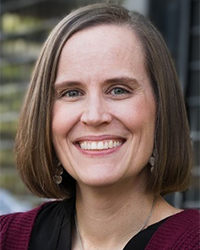
Allison Snedecor
“It was an all-around collaborative win,” she says. “You feel like you’re making a difference in the world one day at a time. It’s what made you want to go into nursing in the first place.”
Teresa Berendowsky
Holistic Health Coordinator
Health Advocacy
When Teresa Berendowsky assesses her nursing career, she can’t help but think about her grandmother, a compassionate woman who always seemed to care for someone, even though she lacked formal training.
That desire to help people burned in Berendowsky, too. She went to nursing school, provided oncology and home health care before eventually operating a residential care home, where she lived several years among her mostly older occupants and immersed herself in their care.
“It was like being a kid again,” Berendowsky recalls. “A huge extended family.”
Despite her love and dedication to her residents, she became overwhelmed and exhausted by the demands of 24/7 caregiving. But the experience prepared her for her role as a holistic health coordinator as she checks in on members and helps them find services they need.
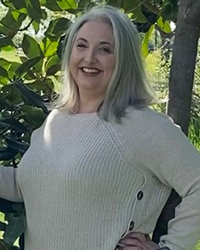
Teresa Berendowsky
“It’s so rewarding when you get ahold of someone, and they have a new diagnosis, and you help them by providing diabetes education or finding behavioral health resources they need,” Berendowsky says. “Sometimes, somebody just wants someone to listen to them.”
She recalls introducing a member to HCSC’s Caregiver Support program after discovering the woman, who had been ill, tried to care for herself and her sick mother.
“We’re not just here for you, but to help you take care of your own,” Berendowsky told the member. “She was just so grateful. She couldn’t believe an insurance company would do that for her.”
Tangelia Douglas
Clinical Strategy Manager
Health Care Management
Twenty years ago, Tangelia Douglas saw nursing as a way to launch a career relatively quickly. She became a licensed vocational nurse and started working in hospitals.
But she knew that wasn’t going to fulfill her. Douglas’ drive to continue her education and earn registered nursing and master’s degrees opened doors to career advancement, professional development and access to a world of health care related positions outside of medical facilities.
“The more degrees you have, the more opportunities become available,” says Douglas, who’s working on a professional certificate. “I always say I’m a professional student.”
That desire to continually broaden her skill set led Douglas to HCSC, where she has worked about five years and recently accepted a new challenge as a clinical strategy manager. She oversees clinical projects to help ensure they align with strategies while meeting quality expectations for members.
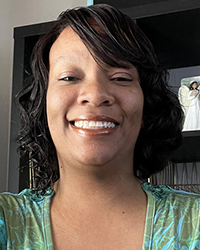
Tangelia Douglas
As an example, Douglas’ team is doing due diligence on a potential diabetes management tool the company is considering.
“I do all the behind-the-scenes work before turning projects over to the implementation team,” she says. “I get to provide a lot of input into what makes sense for the company. I get to solve problems, bring in vendors and change processes.”
Douglas is confident early-stage projects she’s working on now will one day greatly affect the company and members.
“I’ll be able to say I was there when it was a baby and look what it became,” she says. “I can see that something we’re working on now is going to be huge.”
Christine Ehrenhaft
Utilization Management Coordinator
Health Advocacy
Christine Ehrenhaft’s path took many twists and turns, including the deaths of her grandmother and mother, before she decided to become a nurse.
“About the only things I didn’t pursue were careers in law enforcement and the fine arts before I chose nursing,” she says. “It took me a little while to find my feet.”
After getting her degree about a dozen years ago, Ehrenhaft briefly worked in hospitals and a skilled nursing facility before coming to HCSC. As a utilization management coordinator, she collaborates with providers and coworkers to ensure members get appropriate care and resources.
She believes experience as a benefits administrator earlier in her professional history, coupled with her health care knowledge, has made utilization management the perfect fit for her to help member receive the best possible care.
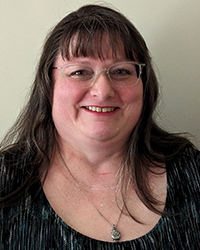
Christine Ehrenhaft
“If I’ve got a member in the hospital, I work on reviewing their care to make sure they are getting the appropriate care for their condition,” Ehrenhaft says. “I also coordinate hospital discharge planning, so the member can focus on getting better. I keep things going in the background so the member doesn’t have to think about approvals.”
Although she doesn’t communicate directly with members, Ehrenhaft knows she and her colleagues are helping them get the care they need. For example, she and her teammates worked closely to help ensure a member discharged after a lengthy hospital stay continued to receive care and support at home.
“I wanted to make sure there was no lapse in care after the member went home,” says Ehrenhaft, who collaborated with team clinical and social workers. “When the member got home, we made sure they had everything they needed. For us, it’s a very teamwork-centered job.”





